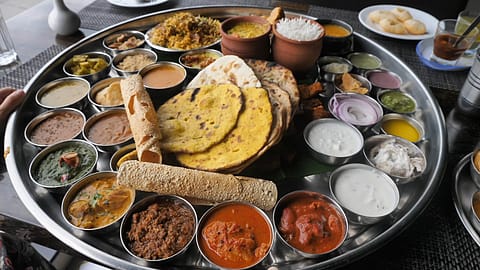63% of Indian consumers worried about food costs, PwC survey finds
Health, transparency, sustainability, and digital integration are also quickly becoming baseline expectations in a market increasingly shaped by informed, value-driven choices.

Economic resilience and convenience are now key drivers of food choices for Indian consumers.
As per PwC India’s ‘Voice of the Consumer 2025’ report, 63% of respondents are concerned about food costs, and they are adapting their shopping habits to maximise savings by shopping across multiple stores, switching to discount outlets, and buying in bulk.
Convenience also plays a growing role: over 70% of consumers use supermarkets, 60% utilise local retailers, and 55% turn to digital delivery platforms.
The government’s recent GST reforms—lowering taxes on essentials while increasing sin taxes on carbonated drinks to 40%—are poised to make daily nutrition more accessible and dining out more affordable with restaurant meals now taxed at a flat 5%.
Moreover, another significant shift is underway in how consumers evaluate food products. Health, transparency, sustainability, and digital integration are quickly becoming baseline expectations in a market increasingly shaped by informed, value-driven choices.
The survey, which polled over 1,000 consumers across India, found that 84% of respondents are extremely or very concerned about food safety.
Rising anxieties around ultra-processed ingredients, pesticides, and additives are driving more than half of consumers to demand higher nutritional value from the brands they choose. This shift is reflected in the growing popularity of functional foods—with sales of no-sugar and low-sugar drinks doubling in 2024 alone.
Recommended Stories
“Our survey highlights that consumers are prioritising nutrition, affordability and sustainability – embracing local produce, digital grocery platforms and wellness technologies,” said Ravi Kapoor, partner and leader – Retail and Consumer sector, PwC India. “With the openness to GenAI and healthcare apps, we’re entering an era of personalised wellness, creating pathways for brands to harness tech-driven solutions for enhanced growth. With health, technology and sustainability leading the charge, brands now have the momentum to adapt and thrive,” he added.
The report reveals that taste (40%), price (39%), and nutritional value (38%) are the top decision drivers when buying food. Yet the growing tech-savvy consumer base—80% now using healthcare apps or wearables to track health metrics—points to another major disruption.
More than half of Indian consumers are open to generative AI supporting personalised diet plans or meal suggestions, signaling a growing appetite for integrated health-food ecosystems.
Additionally, sustainability is no longer optional either. Nearly half the consumers surveyed prefer food with sustainable packaging, and 73% are willing to pay more to support environmental sustainability in food production. However, only a minority actively seeks information about brands’ sustainability efforts, suggesting a disconnect between stated values and purchase behaviour.
(INR CR)
On being at par with global standards, Kumar added that the consumers now expect the government to be the custodian of the quality of ingredients and keep the manufacturers in check. “The whole FSSAI intent to reform the packaging norms in food is going to come into action pretty soon, that is going to create a very simple, healthy, and easy to understand declarations around what the Indian ingredient story is and hence make the consumer easy to understand and not get put to bed by just the brand alone,” he said.
He pointed out that to build a scalable business in India, companies need to domesticate their supply chains.
The industry is also seeing a cultural twist. About 74% of consumers say their food choices are rooted in cultural heritage, underscoring the continued relevance of products that appeal to tradition and nostalgia.
“There are enough and more companies, particularly on the Indian snacking side, which are building up their businesses locally and following those production practices to make sure they deliver a consistent promise, consistent quality, and consistent taste as consumers would expect,” said Kumar.
For food companies, the message is clear: survive and grow by moving from reactive promotions to strategic product innovation. Consumers expect brands to play a proactive role in public health, with 54% pointing to government and public health bodies as the primary responsibility for encouraging healthy eating, closely followed by manufacturers themselves (51%).
Looking ahead, the report recommends a domain-based strategy, where food companies collaborate with adjacent industries—healthcare, technology, logistics—to deliver hyper-personalised, convenient, and affordable offerings.
One thing the report misses out on is the quick service and eating-out segment which is increasingly growing. “Lots of brands are trying to manage the holy grail of products and serve the ‘going out’ segment. It’s becoming very critical and how do you treat your business for both. That’s going to be an important trend as well in the food landscape,” added Kumar.